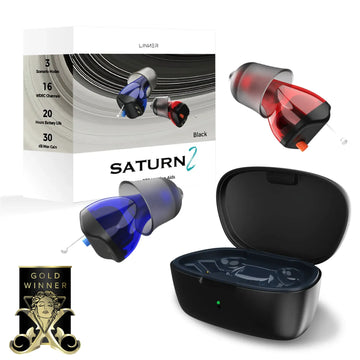What is Ménière disease?
Ménière disease is a rare inner ear disorder that can impair hearing and balance, mainly affecting one ear. It progresses slowly and can significantly impact the patient’s overall quality of life.
The number of people diagnosed with Ménière disease ranges from 3,5 per 100,000 to 513 per 100,000 worldwide. This disorder is more likely to affect the older, white, and female population. In most cases, the disease occurs among adults between 40 and 60.
How does Ménière disease develop?
Ménière disease progresses due to fluid accumulation inside the inner ear, known as the labyrinth, where the balance and hearing organs are located. Therefore, their function will be compromised. The exact reason for fluid accumulation remains unclear. However, several potential factors can lead to this: autoimmune diseases, allergies, viral infections, migraine, and genetic predisposition.
What are the common symptoms of Ménière disease?
Excessive fluid build-up in the inner ear can cause various symptoms among the affected individuals. Patients with Ménière disease can present with dizziness or vertigo, hearing loss, tinnitus or ringing in the ears, pressure or discomfort in the ears, and nausea.
The clinical presentation, including symptoms, duration, and severity of Ménière disease, significantly varies among the patients. People can experience spontaneous dizziness attacks or shortly after tinnitus or hearing loss. In some cases, there will be single episodes of dizziness divided by extended periods. Others will report more frequent episodes over a few days. Sometimes, the dizziness attacks severely affect the patient’s balance and cause them to fall. Each episode of dizziness can last between 12 minutes to 12 hours.
How is Ménière disease diagnosed?
Diagnosing Ménière disease can be challenging for the physician as no gold standard diagnostic test exists. Complete medical history and physical exam are essential for diagnosis. Physicians should have the expertise to thoroughly analyze the symptoms to exclude other diseases with similar symptoms. A hearing test, called audiometry, is required to identify the extent of hearing impairment and monitor the follow-up. Vestibular function tests can detect any balance disorder. Sometimes, the physician will need additional laboratory tests and imaging scans to rule out other causes of vertigo, hearing loss, and tinnitus.
How is Ménière disease treated?
Currently, there is no known cure for Ménière disease. Physicians suggest various treatment options to manage the symptoms.
Motion sickness medication, diuretics, and betahistine can control episodes of vertigo. Diuretics improve the symptoms by decreasing the fluid accumulation in the inner ear, while betahistine increases the blood flow to the inner ear. Limiting dietary salt intake can reduce the severity of symptoms. Anti-nausea medicines are prescribed for patients with severe nausea and vomiting during episodes of dizziness.
Balance problems between the dizziness attacks might be improved by vestibular rehabilitation therapy. Patients with hearing loss due to Ménière disease can benefit from hearing aids.
Middle ear injections with gentamicin and steroids might reduce the frequency of vertigo episodes. However, gentamicin can further damage the hearing.
Individuals with severe vertigo that is not managed by medication are recommended surgery. Various surgical methods are used to decrease the fluid build-up in the ear.
Cognitive therapy helps patients cope with vertigo attacks and address their anxiety.
References
https://www.ncbi.nlm.nih.gov/books/NBK536955/
https://www.hearingloss.org/hearing-help/hearing-loss-basics/menieres/
https://www.nhs.uk/conditions/menieres-disease/
https://www.mayoclinic.org/diseases-conditions/menieres-disease/symptoms-causes/syc-20374910
https://www.mayoclinic.org/diseases-conditions/menieres-disease/diagnosis-treatment/drc-20374916


![Linner Mercury Clarity OTC Hearing Aids [FSA & HSA Eligible] Linner](http://www.linnerlife.com/cdn/shop/files/Linner-Mercury-Clarity-OTC-Hearing-Aids-_FSA-_-HSA-Eligible_-Linner-110038953.webp?v=1725853434&width=360)

![Linner Mars OTC Hearing Aids [FSA & HSA Eligible] Linner](http://www.linnerlife.com/cdn/shop/files/Linner-Mars-OTC-Hearing-Aids-_FSA-_-HSA-Eligible_-Linner-110039213.webp?v=1725865495&width=360)
